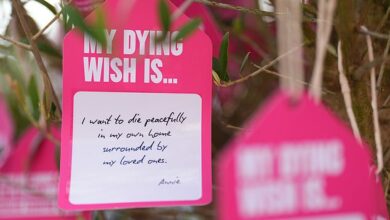Mother-of-two left to fight for life after liposuction in Turkey led to ‘flesh-eating’ disease and fatal blood poisoning
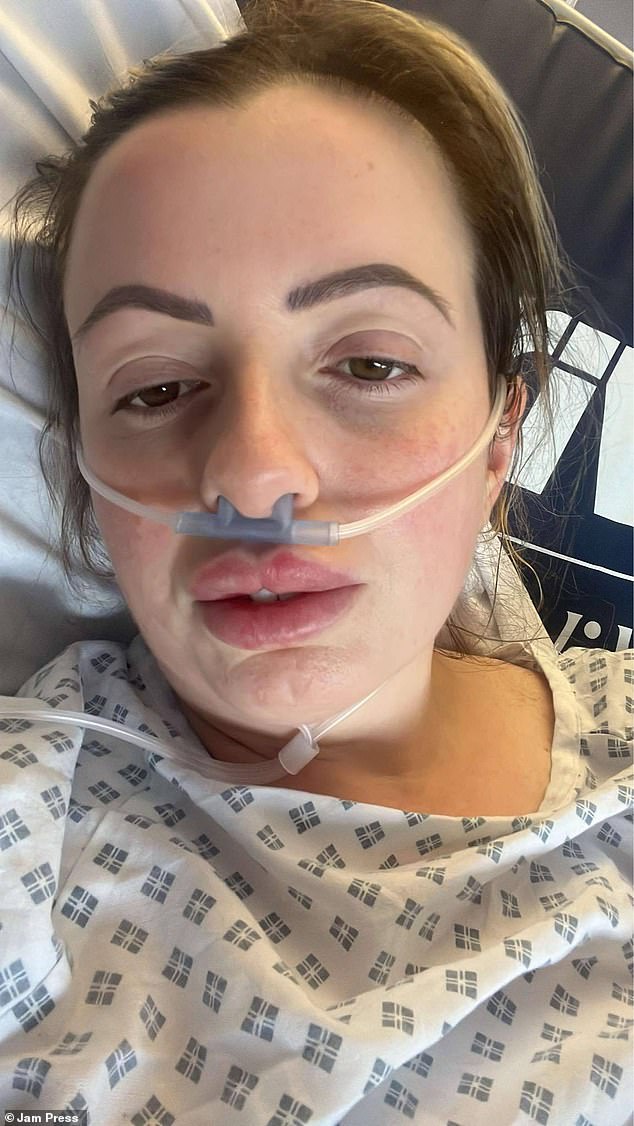
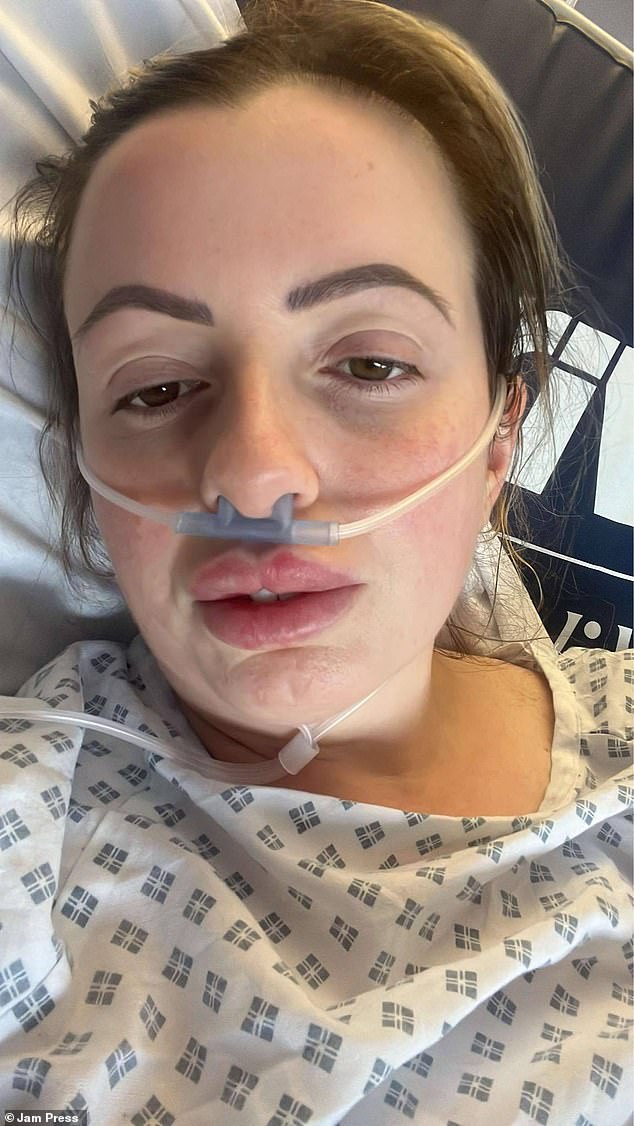
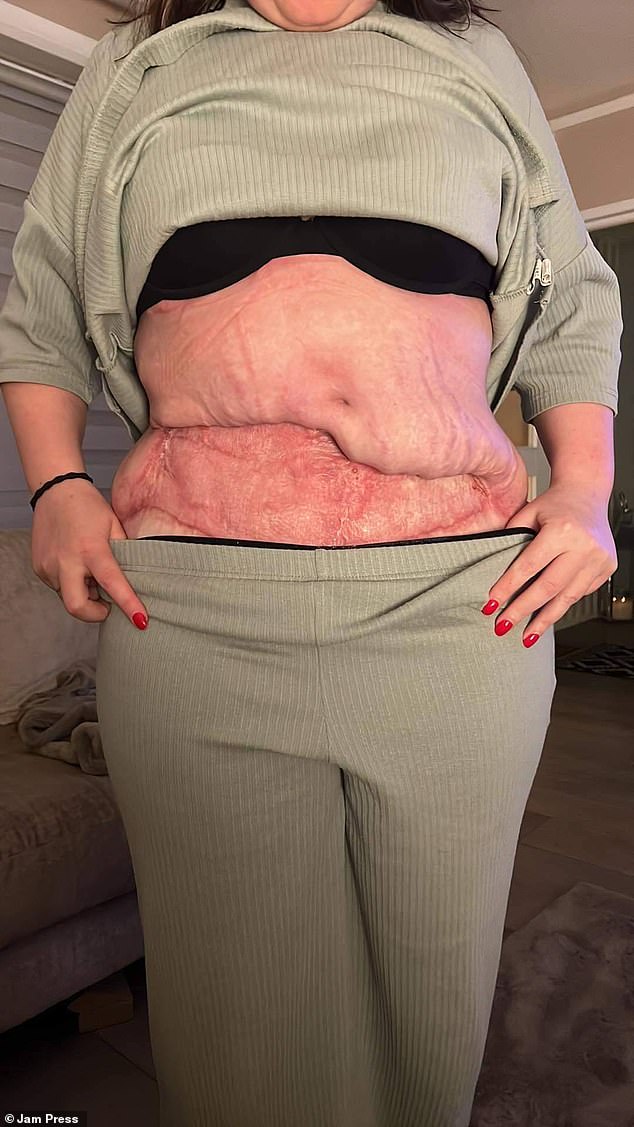
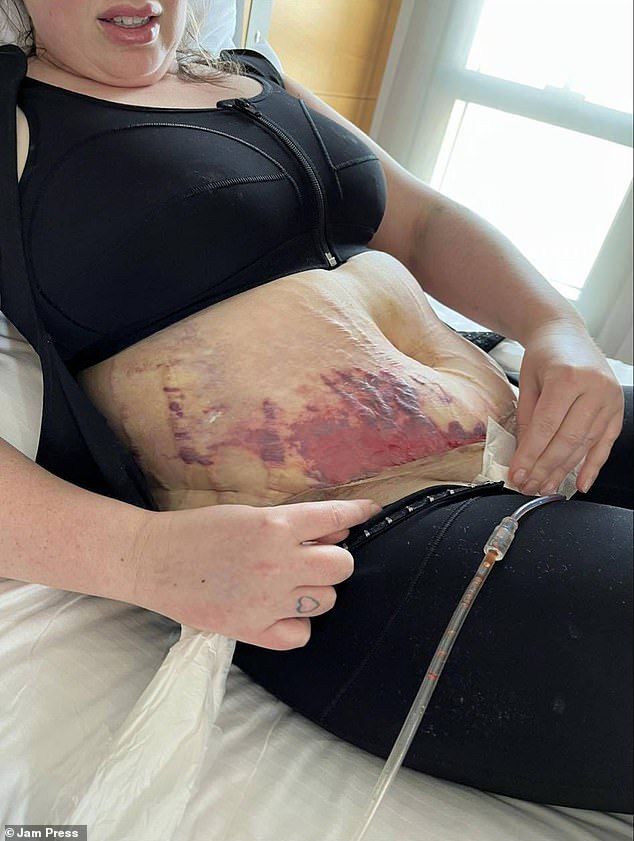
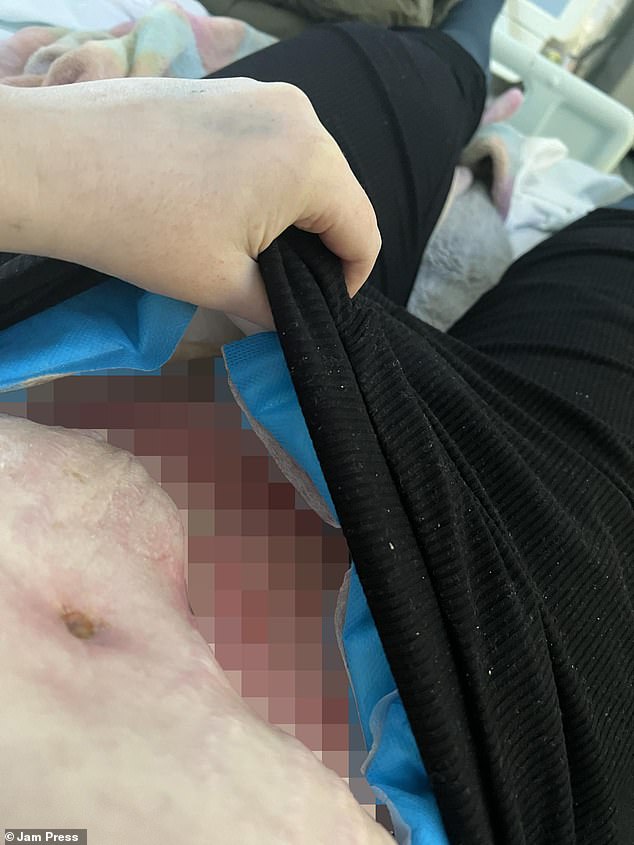

A mother-of-two feared her body would ‘split in two’ after a botched liposuction procedure in Turkey left her in agonizing pain and fatal sepsis.
Carrie, 36, from Slough, booked herself in for liposuction at an Istanbul clinic in 2022 after years of feeling unhappy with the changes in her body following the birth of her two children.
But the moment the support assistant woke up after the six-hour operation, she realized the £4,500 operation had gone drastically wrong.
Her abdomen had ‘turned black’ as a result of the life-threatening flesh-eating disease, necrotizing fasciitis, which she contracted on the operating table.
Days later, she collapsed in pain and was admitted to intensive care, where doctors discovered she had developed a fatal sepsis that was causing her organs to shut down.
Only after five emergency operations to cut away the dead flesh and three months in the hospital did Carrie begin her long road to recovery.

Carrie, 36, from Slough, Berkshire, who was unhappy with the appearance of her stomach after having two children, booked herself in for liposuction in Istanbul, Turkey in 2022

Once she woke up, the surgeon told Carrie that she had developed necrotizing fasciitis. Her stomach is still ‘deformed’ after the ordeal
“When I woke up, everything was painful – I knew something was wrong,” she said.
‘It was such a tight feeling that I felt like my body was going to split in two.
‘I wanted to take away the pain. My stomach started to turn black and she [doctors] said I had necrotizing fasciitis.”
Necrotizing fasciitis, also known as flesh-eating disease, is a rare and life-threatening infection that affects the deep layers of the skin, according to the NHS.
It is usually caused by the common bacteria, group A Streptococcus or Staphylococcus aureus.
Carrie recalled the “hellish” ordeal, saying doctors discovered the infection as soon as she woke up and tried to “wash it out.”
She said: ‘I had to go back to the operating room to flush it all out. They cut me open while I was awake and put a screen in front of me so I couldn’t see what was going on.’

Necrotizing fasciitis, also known as flesh-eating disease, is a rare and life-threatening infection that can occur if a wound becomes infected, according to the NHS
Shortly afterwards, Carrie claims the doctors told her everything was fine and she could fly back to Britain.
But just four days later, after landing back in Britain, she collapsed in pain and was rushed to hospital, where she was diagnosed with sepsis and organ failure.
“When I got home, it all started going downhill,” she said.
‘The day after I got back I went to change my bandage and saw a huge hole that stretched all the way across my stomach and was so big I could see my inner stitches.
‘I had a fever, I was shivering. It hurt so much, it felt like I was being burned.”

Just four days later, after landing back in Britain, the mother collapsed in pain and was rushed to hospital, where she was diagnosed with sepsis and organ failure.
Within a day, she had collapsed in her bathroom and was subsequently rushed to hospital and eventually to intensive care.
“I went back to the hospital and they said I had sepsis and needed emergency surgery,” she said.
“They had to cut the meat out and in the end they only took half of my stomach.”
In total, Carrie underwent five operations in 12 days as medics cut out the dead flesh in an attempt to save her life.
She received a skin graft from her right leg to provide her stomach with sufficient tissue, and remained at ITU for a week.
It wasn’t until three months later that she was able to leave the hospital – and another nine months before she could return to work.

Carrie claims her first ‘red flag’ was when she arrived at a public hospital instead of a private clinic, where she was asked to hand over cash
After the ordeal, Carrie warns others to have surgery in Britain rather than fly to Turkey.
‘Ever since I had children, I had problems with my stomach. I’m not skinny, but I’m not huge, but there is a pouch and stretch marks that I hated. I wanted it gone.
‘I received some inheritance money from my grandmother and wanted to get something that made me happy.
‘I spoke to the company that carried out my surgery for two years. I researched them, they had good reviews and I trusted them a lot.
“I thought I went with the right doctor.”
Now the mum has regretted her decision and urged others to ‘just diet and go to the gym’ if they want to change their bodies.
“If I could have turned back time, I would never have gotten it,” she said.
‘It still affects my mental health and I have to position my clothes so that you can’t see my stomach because it makes me look deformed.
‘I had to get on with it. I can’t change it and if I dwell on it, my mental health will suffer.
‘I try to stay positive and think I’m lucky to be alive and see my children growing up.’



